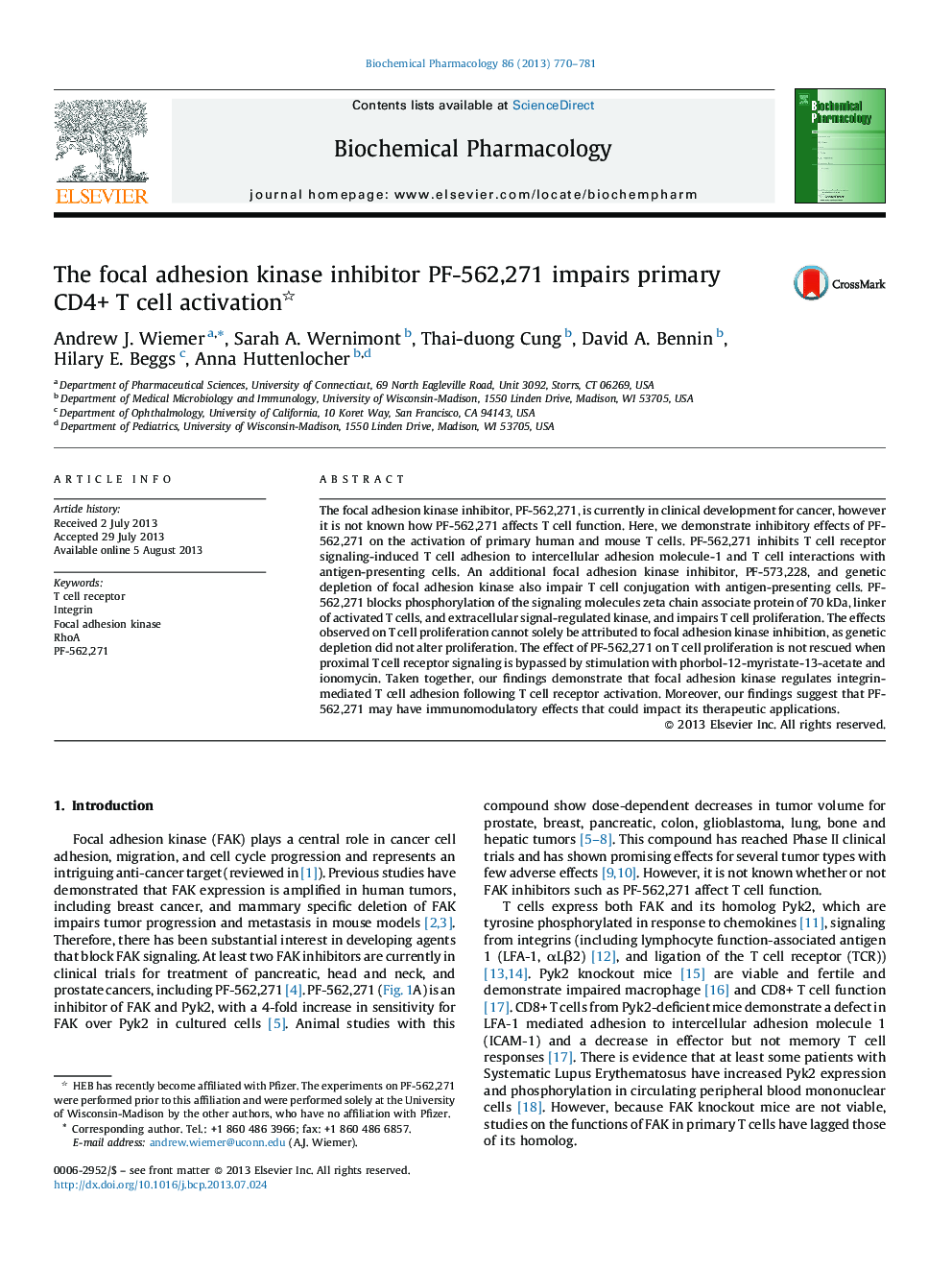| Article ID | Journal | Published Year | Pages | File Type |
|---|---|---|---|---|
| 2512642 | Biochemical Pharmacology | 2013 | 12 Pages |
The focal adhesion kinase inhibitor, PF-562,271, is currently in clinical development for cancer, however it is not known how PF-562,271 affects T cell function. Here, we demonstrate inhibitory effects of PF-562,271 on the activation of primary human and mouse T cells. PF-562,271 inhibits T cell receptor signaling-induced T cell adhesion to intercellular adhesion molecule-1 and T cell interactions with antigen-presenting cells. An additional focal adhesion kinase inhibitor, PF-573,228, and genetic depletion of focal adhesion kinase also impair T cell conjugation with antigen-presenting cells. PF-562,271 blocks phosphorylation of the signaling molecules zeta chain associate protein of 70 kDa, linker of activated T cells, and extracellular signal-regulated kinase, and impairs T cell proliferation. The effects observed on T cell proliferation cannot solely be attributed to focal adhesion kinase inhibition, as genetic depletion did not alter proliferation. The effect of PF-562,271 on T cell proliferation is not rescued when proximal T cell receptor signaling is bypassed by stimulation with phorbol-12-myristate-13-acetate and ionomycin. Taken together, our findings demonstrate that focal adhesion kinase regulates integrin-mediated T cell adhesion following T cell receptor activation. Moreover, our findings suggest that PF-562,271 may have immunomodulatory effects that could impact its therapeutic applications.
Graphical abstractFigure optionsDownload full-size imageDownload as PowerPoint slide
